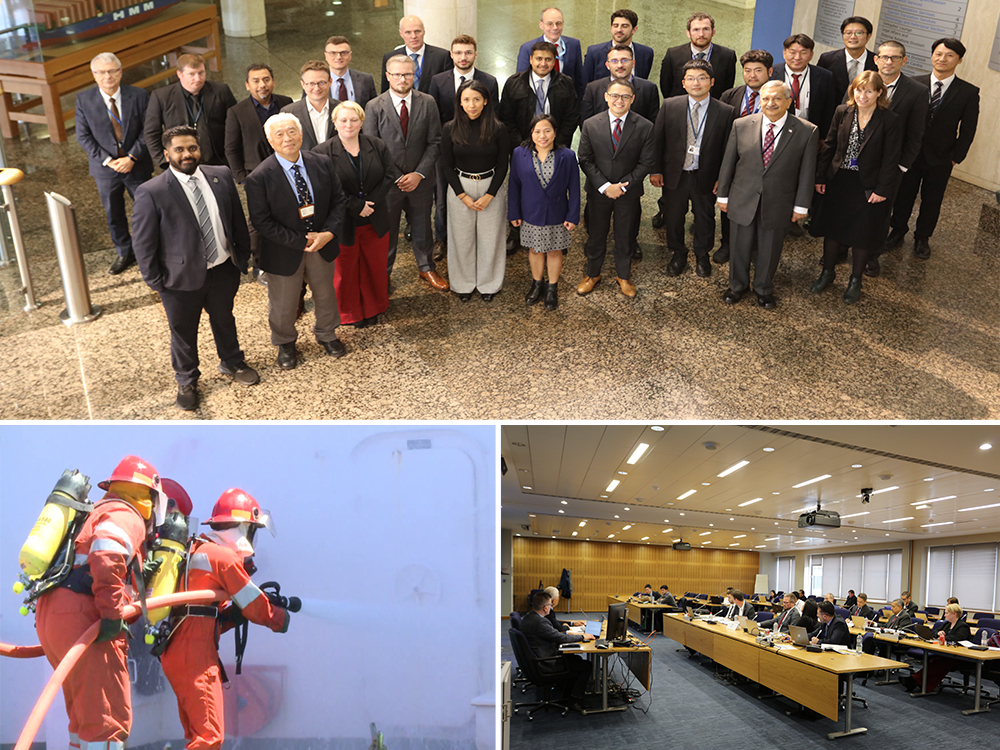Addressing fires on container ships requires a holistic risk-based approach and prioritization of risk prevention and mitigation enhancement when developing amendments. To support ongoing work on developing revisions to SOLAS or new regulations concerning detection and control of fires in cargo holds and on the cargo deck of containerships, experts in containership fires and Formal Safety Assessment (FSA) have been meeting at IMO Headquarters in London (23-26 October).
The aim of this meeting of the Formal Safety Assessment (FSA) Experts Group is to review the outcome of an FSA study called CARGOSAFE, which was commissioned by the European Maritime Safety Agency (EMSA).
The study examines the risks associated with fires in cargo spaces on container ships and evaluates measures to control these risks in terms of prevention, detection, firefighting, and containment. The study follows the FSA structure for use in IMO rule-making process, based on the Revised guidelines for Formal Safety Assessment (FSA) for use in the IMO rule-making process (MSC‑MEPC.2/Circ.12/Rev.2). The experts have been evaluating whether the CARGOSAFE study has been conducted in accordance with the Revised FSA Guidelines.
A report from the group will be submitted to the Sub-Committee on Ship Systems and Equipment (SSE), which meets for its 10th session from 4 to 8 March 2024.
The work on container ship fires follows a number of incidents involving fires on container ships, and subsequent submissions to IMO's Maritime Safety Committee (MSC), proposing a new agenda item on this matter. The MSC agreed to include in the agenda of the SSE Sub-Committee, a new item on "Development of amendments to SOLAS chapter II-2 and the FSS Code concerning detection and control of fires in cargo holds and on the cargo deck of containerships", with a target completion year of 2025, in association with the Sub-Committee on Carriage of Cargoes and Containers (CCC) as and when requested by the SSE Sub-Committee.
The expected next step would be to propose draft amendments to SOLAS chapter II-2 and the Fires Safety Systems (FSS) Code, based on the suggested risk control options and other submissions and proposals.
Approximately 25 experts have been attending the FSA Experts Group meeting, which is chaired by Mr. Koichi Yoshida (Japan), with Ms. Therese Christensen (Denmark) serving as the Vice-Chair.
Formal Safety Assessment is a structured and systematic methodology, aimed at enhancing maritime safety, including protection of life, health, the marine environment and property, by using risk analysis and cost benefit assessment. FSA can be used as a tool to help in the evaluation of new regulations for maritime safety and protection of the marine environment or in making a comparison between existing and possibly improved regulations, with a view to achieving a balance between the various technical and operational issues, including the human element, and between maritime safety or protection of the marine environment and costs.
